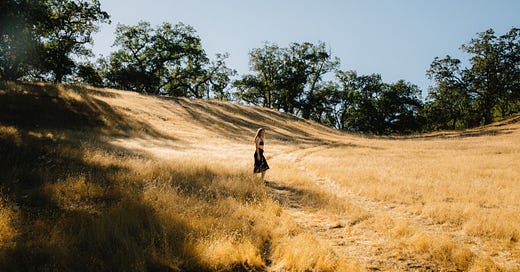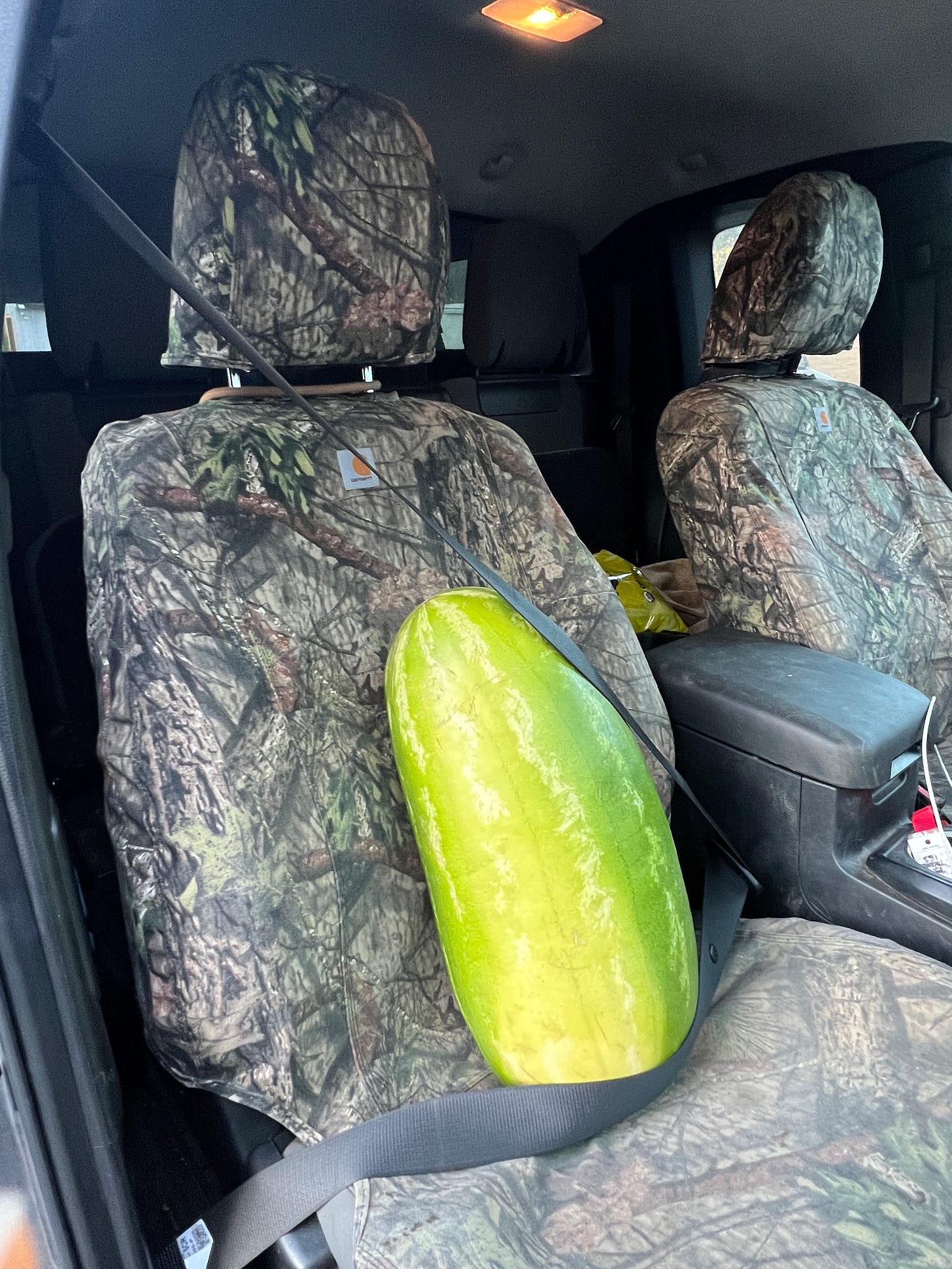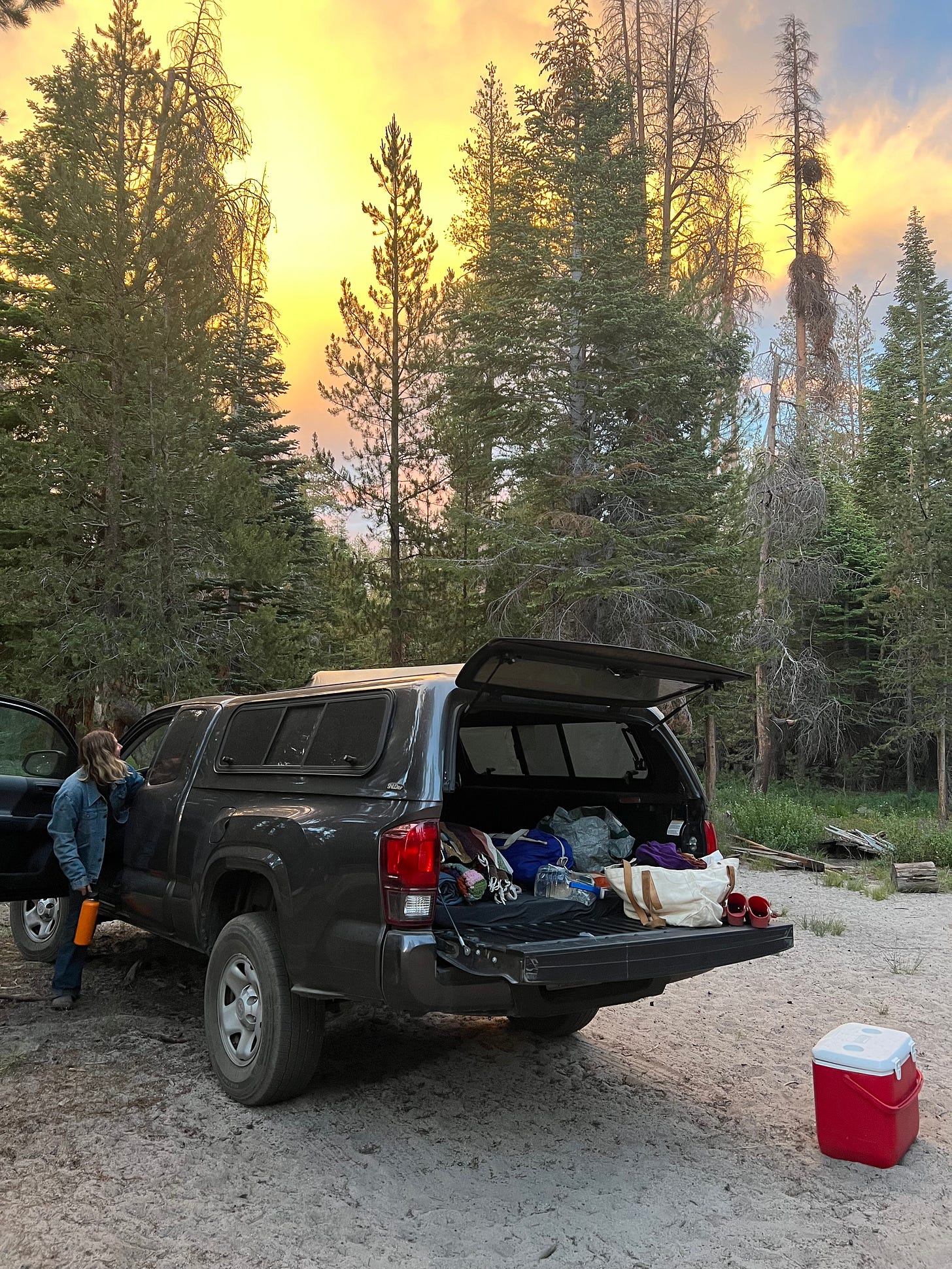Leave Him Where I Left Him
Applying the Bechdel Test to my life while riding 10 miles on a horse named Kid.
In July my roommate Haley and I went horseback riding in the majestic rocky peaks of eastern California. Her friend Zosha had been living at a pack station in the Sierra Forest and was eager for company after months of working as a trail guide in the lonely ranges. I had only met Zosha once, and my friendship with Haley was still green, but I agreed to go without giving it a second thought. I was curious to see if I still liked riding horses as much as I did when I was a girl, and I was chasing experiences without the option of wifi or service as much as possible.
Before the trip, Haley and I agreed that we wanted to take the weekend to let our hearts and minds rest. What did that look like for each of us, I wondered. Alone in the wilderness with nothing to do, I considered the potency of our love-soaked triad. I had just met someone new; Haley was navigating being single and softly dating, and Zosha was recovering from a burned heart. Without the distractions of technology or humanity, the potential looping and infinite hypothesizing that might occur between the three of us was at the forefront of my mind. I worried that the offerings of love around me would go unnoticed if I didn’t set a boundary, at least for myself.
As we made our way to the mountains, I raised my concern to Haley from the passenger seat of her truck while nibbling on plantain chips and jerky. Reading from a note I had made in my phone a week earlier, I told her about the vision I wanted for myself in my new relationship: leave him where I left him, don’t give it any airtime in between, pick it back up later. Fantasizing about the spaciousness I’d have for other activities, I joked that I wanted to apply the Bechdel Test to my life. When Haley asked me what I was talking about, I started to explain it and realized that maybe a container was exactly what I needed to hold myself accountable.
The Bechdel Test, popularized by the graphic novelist Alison Bechdel, is a test generally applied to film and television. In order to pass the test, a film must feature two named women who talk to each other about something other than a man. “What if we don’t talk about men this weekend?” I suggested. Without hesitation, Haley was on board and soon thereafter we broke the news to Zosha over text message. “Headed your way! Truck packed with thirty-pound watermelon and backgammon, can’t wait to see you! P.S. men are off the table.”
Perhaps you’re reading and feeling perplexed as to why talking about things other than men felt substantial enough to overcome that setting a boundary seemed necessary. If you’re someone who isn’t easily absorbed by relationships with others — being in them, out of them, or simply wanting them — I commend you and
I am frankly jealous.
It’s not that I don’t have anything else going on in my head — in fact the three of us are remarkable women: I’m an artist, Haley is one of the most knowledgeable farmers I’ve ever met, and Zosha is a cowgirl. And that’s just what we do — who we are is something entirely different. Maybe it’s just easier to talk about men instead of, I don’t know, the solar system.
Is my tendency to unpack, especially around matters of the heart, a learned behavior? Have I modeled my conversational habits after all the films that don’t pass the test (the list is long), or was I simply not exposed to enough women living separately from men during my early years? Is it that I have a particularly magnanimous capacity for love and enjoy attempting to articulate my experiences of it? What I’m curious about is: does talking about it help — or does it hurt?
I’ve been talking about my experiences in love for years — with friends, with paid professionals, even with you. I’ve been looking for my best self and seeking security in her while navigating a bottomless hunger to be in partnership, and I’ve probably put in the ten-thousand hours necessary to render me a master according to Malcolm Gladwell.







